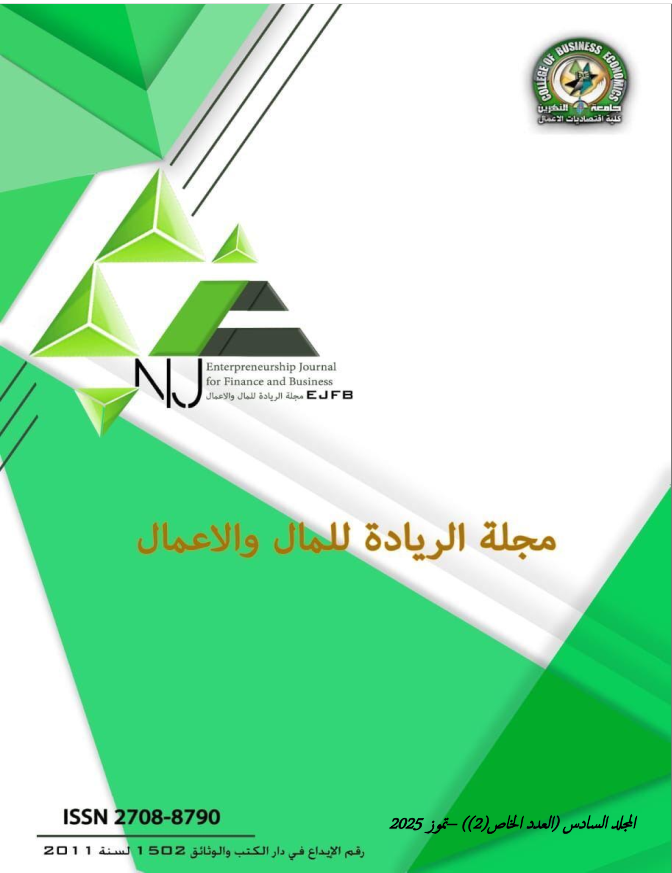The extent of taking into account internal interest in many financial matters and achieving financial sustainability for self-financing units/case study in Nineveh Governorate
DOI:
https://doi.org/10.56967/ejfb2025700Keywords:
internal audit, risk management, financial risks, financial sustainabilityAbstract
This research aims to demonstrate the contribution of internal auditing to help manage and reduce financial risks and achieve financial sustainability. The research included a number of variables to identify risks, their types, the foundations of their management, and the procedures followed to reduce risks. To achieve the research objectives and test its hypotheses, we conducted a case study of the most important financial risks that are likely to face self-financing units in Nineveh Governorate.
The most important results of the study reached by the researcher were the absence of regulations governing the performance of internal auditing to carry out its role in managing and reducing risks, the weakness of the role of internal auditing in achieving financial sustainability, and the lack of a clear program for internal auditing prepared in accordance with sustainability. The study concluded with a number of recommendations, the most important of which are: The necessity of ensuring that there is a plan in each department that includes steps and procedures to reduce the financial risks that may be exposed to and review them continuously. The importance of internal audits directing the unit to prepare reports and data related to sustainability in general and financial sustainability in particular. Internal audit must measure the financial sustainability of financial reporting information through specific quantitative measures
Downloads
Downloads
Published
How to Cite
Issue
Section
License
Copyright (c) 2025 عبد السلام حبو محمد الحبو، مروان محمد داود، ماجد يعقوب محمد العلي

This work is licensed under a Creative Commons Attribution 4.0 International License.
This is an Open Access article distributed under the terms of the creative commons attribution (CC BY) 4.0 international license which permits unrestricted use, distribution, and reproduction in any medium or format, and to alter, transform, or build upon the material, including for commercial use, providing the original author is credited.










